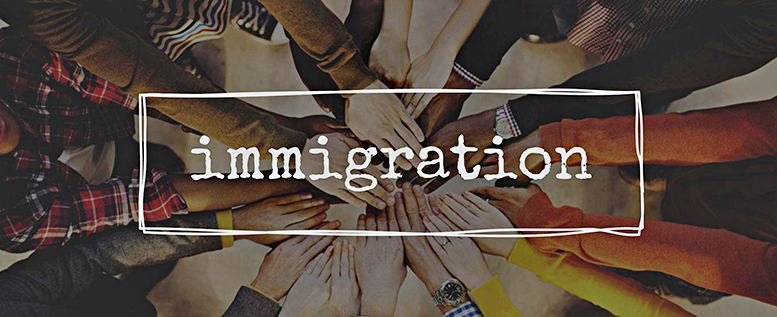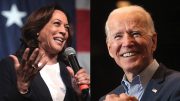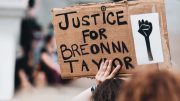By: Mike Givens*/TRT Assistant Editor—
It was 107 degrees Fahrenheit in Phoenix when my flight landed at its airport on the afternoon of Friday, August 3. For weeks I’d known that the temperatures were going to be excessive and when in conversation with others, I was consoled with platitudes about the difference between “dry” and “moist” heat.
I’d never been to Arizona before—or the Midwest for that matter—and despite the high temperatures, I was excited about the work I’d be doing. I’d started a new full-time job leading the communications unit of an international human rights organization and this assignment that brought me all the way from Massachusetts to Arizona would be my first major project.
On Saturday, my colleagues and I drove more than two hours through the southwest desert into Ajo, a small, economically-depressed former mining town about 40 miles from the United States-Mexico border. While in that town, my colleagues and I would be coordinating a public action to draw attention to the fact that people providing humanitarian aid to undocumented migrants crossing the border were being prosecuted by the federal government.
Unless you’ve been living under a rock, you’ve heard and seen the stories: families being torn apart at the border and placed into detention facilities; children screaming for their parents; parents in agony over not knowing where their children were taken. I was quite proud that weekend to be working with activists and organizers who were fed up not only with the fact that those families are being torn apart but also with how people supporting those families were being arrested and sanctioned by our own government.
My Privilege
It’s difficult to acknowledge one’s privilege. Throughout my adult life, I’ve had to wrestle with the varying dimensions of privilege—and the glaring lack of privilege—that have characterized my 36 years on this earth.
To be blunt, I’m black, so that’s one strike against me in this nation. However, I’m a cisgender male, which carries an incredible amount of privilege. I’m gay—strike two—and that carries its own level of marginalization. However, I’m very well-educated, which again confers a high level of privilege in a society that values those of us lucky enough to have been able to get a good education. I have a “white-sounding” name—another privilege—and my voice over the phone and the way I articulate myself via e-mails leads many to think that I’m white—another check in the privilege column. I’ve always been effeminate in my manners, so while people may look at me physically and presume me to be a heterosexual male, as soon as I open my mouth or engage in my everyday mannerisms, that notion is quickly dispelled. And effeminate gay men, as many of us know, routinely have their manhood and sense of masculinity eviscerated by our patriarchal culture (another knock against me). I also struggle with mental illness which, combined with my identity as a black male, places me in a special category of outsidedness. I’m an introvert—another demerit, at least in the eyes of our talkative culture—but I also make a great salary and am well off compared to so many others (a point of privilege).
I’ve made my peace with the soup I live in, negotiating my way between and among varying identities, some bestowing certain societal and cultural benefits while others leading to my inevitable dissociation with the mainstream.
That weekend in Ajo provided a stark realization of a privilege that I hadn’t reconciled myself with: being an American. This is not a country that I’m proud to live in by any means. There’s so much we can be doing better when it comes to capitalism, racism, homophobia, transphobia, biphobia, economic inequality, misogyny, sexism, ableism, mass incarceration, xenophobia, our electoral system, and so many other issues. All that being said, many of us have it better than in other countries.
Honduras, El Salvador, Nicaragua, Guatemala, and several other countries see thousands of people flee north into Mexico and the United States every year. Why? Gangs, unimaginable violence, widespread and hard-hitting political corruption, climate change, and persecution are rampant in these countries. So rampant that people uproot their families and travel hundreds of miles north into foreign nations knowing that, at best, they will live in poverty. Many of those families will come to the United States knowing they’ll be vilified, but so desperate for new lives and an escape from their social and cultural agonies that they’ll accept living in substandard conditions under a presidency that despises and demonizes them.
I’ve never had to face a reality like that—at least not yet. I’ve never had to make a decision to halt my life and leave the country I grew up in to start a new life in a nation where I knew I wasn’t wanted. I can’t imagine that. I suspect that many reading this column can’t either.
It doesn’t sit well with me, this privilege, this gnawing feeling that I live and work and thrive in a nation so hostile to others, particularly “others” of a certain skin tone who hail from other countries. They walk hundreds of miles with little food and water, no guarantees, and no expectations of being welcomed. They cross arid deserts through modern-day underground railroads hoping to come into a nation that squarely places a bullseye on their backs.
So, where am I now?
Since that weekend, I’ve been humbled by a rejuvenated desire to utilize my privilege to center and uplift those countless lives who cross the southwestern border into a nation filled with hostility. I take stock of where I am in life, show deep appreciation, and dig in my heels for the fight for justice.
The battle continues, and I keep fighting …
*A graduate of the Boston University College of Communication, Mike Givens has been a social justice advocate for 10 years. During that time he’s worked on a range of initiatives aimed at uplifting marginalized populations. An experienced media strategist and communications professional, Mike currently devotes his spare time to a number of vital issues including racial justice and socioeconomic equity. He is currently the associate director of strategic communications for an international human rights organization in Cambridge, Mass.







